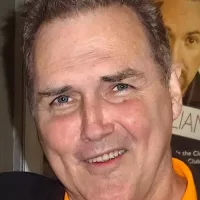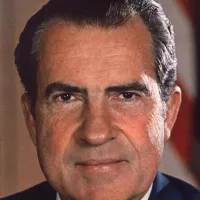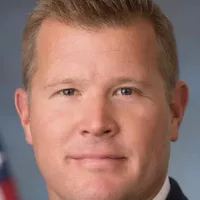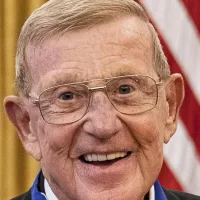Sacheen Littlefeather, an American actress and Native American activist known for declining Marlon Brando's Oscar in 1973, faced posthumous allegations of fabricating her Native American identity. Family members and journalists challenged her claims, sparking controversy and raising questions about her legacy.
November 14, 1946: Birth of Maria Louise Cruz (Sacheen Littlefeather)
Maria Louise Cruz, later known as Sacheen Littlefeather, was born on November 14, 1946.
1949: Gerold and Geroldine Cruz Open Cruz Saddlery
Sacheen Littlefeather's parents, Gerold and Geroldine Cruz, established Cruz Saddlery in Salinas in 1949.
1960: Sacheen Littlefeather Attends North Salinas High School
Sacheen Littlefeather attended North Salinas High School from 1960 to 1964, where she was an active member of the 4-H club.
1964: Sacheen Littlefeather Graduates High School
Sacheen Littlefeather graduated from North Salinas High School in 1964.
1966: Gerold Cruz Passes Away
Gerold Cruz, Sacheen Littlefeather's father, passed away in 1966. Geroldine continued to run the family business after his death.
1969: Sacheen Littlefeather Joins United Bay Indian Council
Sacheen Littlefeather joined the United Bay Indian Council in 1969, further engaging with Native American activism and identity.
1969: Sacheen Littlefeather Moves to San Francisco Bay Area
Sacheen Littlefeather moved to the San Francisco Bay Area in 1969 to pursue a career in modeling. She found support within the Native American community there.
1970: Sacheen Littlefeather Named Miss Vampire USA
In 1970, Sacheen Littlefeather was crowned Miss Vampire USA as part of a promotional campaign for "House of Dark Shadows."
1970: Sacheen Littlefeather's Involvement in Alcatraz Occupation Disputed
Sacheen Littlefeather's claim of participating in the 1970 occupation of Alcatraz has been contested. While some, like activist Adam Fortunate Eagle, confirmed her involvement, others, like LaNada War Jack, disputed her presence.
1971: Sacheen Littlefeather Participates in American Indian Festival
Sacheen Littlefeather actively participated in the 1971 American Indian Festival at Foothill College.
1972: Sacheen Littlefeather Judges Beauty Pageant and Organizes Festival
In 1972, Sacheen Littlefeather served as a judge for a local beauty pageant and took the lead in organizing an American Indian Festival at the Palace of Fine Arts.
1972: Brando's Role in "The Godfather"
Marlon Brando starred as Vito Corleone in "The Godfather" in 1972, a performance that would later earn him a Best Actor nomination at the Academy Awards.
1972: Playboy Magazine Cancels "10 Little Indians" Spread
Playboy magazine planned a photo spread called "10 Little Indians" in 1972, featuring Sacheen Littlefeather as one of the models. However, the spread was ultimately canceled.
January 1973: Sacheen Littlefeather Featured in "Make-up for Minority Women"
In January 1973, Sacheen Littlefeather, identified as a professional model, was featured in "Make-up for Minority Women."
February 1973: Sacheen Littlefeather Protests Budget Cuts to Indian Programs
As a spokesperson for the National American Indian Council, Sacheen Littlefeather protested against President Richard Nixon's proposed budget cuts to federal Indian programs in February 1973.
March 6, 1973: Sacheen Littlefeather Attends FCC Meeting on Minority Representation
Sacheen Littlefeather participated in a meeting with the Federal Communications Commission on March 6, 1973, advocating for increased minority representation on television.
March 27, 1973: Academy Awards Protest
On March 27, 1973, Sacheen Littlefeather, on behalf of Marlon Brando, declined his Best Actor Oscar for "The Godfather" in protest of Hollywood's portrayal of Native Americans.
October 1973: Playboy Magazine Publishes Photos of Sacheen Littlefeather
Following her Academy Awards appearance, Playboy magazine published a photo spread featuring Sacheen Littlefeather in October 1973. The photos were initially intended for a canceled spread titled "10 Little Indians."
1973: Sacheen Littlefeather Refuses Academy Award on Behalf of Marlon Brando
In 1973, Sacheen Littlefeather represented Marlon Brando at the 45th Academy Awards, declining the Best Actor award he won for "The Godfather" on his behalf. Brando boycotted the ceremony to protest Hollywood's portrayal of Native Americans and to highlight the Wounded Knee standoff.
1973: Marriage to Michael Rubio
Sacheen Littlefeather married engineer Michael Rubio in 1973.
1974: Disclosure of Health Challenges and Support from Marlon Brando
In 1974, Sacheen Littlefeather shared her experiences with serious health issues, including internal bleeding, collapsed lungs, and being hospitalized for tuberculosis at the age of four. She also revealed that she had been suicidal and spent a year in a mental institution. Littlefeather credited Marlon Brando with providing her with medical support and assisting in her recovery, leading her to deliver the Oscar speech on his behalf as a gesture of gratitude.
1974: Radio Work and Connection to Coppola and Brando
In 1974, an article highlighted Sacheen Littlefeather's work at a San Francisco radio station and her connection to Francis Ford Coppola, who referred her to Marlon Brando due to his interest in Native American issues.
1974: Sacheen Littlefeather Describes Difficult Childhood in Interview
In a 1974 interview, Sacheen Littlefeather revealed details about her challenging upbringing, including her parents' separation and living with her grandparents.
1974: Sacheen Littlefeather Studies Acting at American Conservatory Theater
Sacheen Littlefeather honed her acting skills at the American Conservatory Theater in 1974, taking classes in various disciplines.
1974: Red Earth Performing Arts Company Founding
The Red Earth Performing Arts Company was founded in 1974 by Nez Perce actor and playwright John Kauffman, Jr.
1975: Sacheen Littlefeather Works on Movie Script About Edward S. Curtis
Sacheen Littlefeather collaborated with Cap Weinberger, Jr. in 1975 on a movie script about Edward S. Curtis, a photographer known for his work documenting Native American cultures.
1976: Sacheen Littlefeather Alleges Abuse from Father
During a 1976 television interview, Sacheen Littlefeather accused her father of being abusive towards her, her mother, and her sisters.
1976: Sacheen Littlefeather Emcees United National Indian Tribal Youth Conference
Sacheen Littlefeather served as the emcee for an evening performance at the United National Indian Tribal Youth conference in Oklahoma City, Oklahoma, in 1976.
1978: Greenpeace Collaboration
In 1978, Sacheen Littlefeather joined Greenpeace and other public figures to protest the Newfoundland seal hunt.
1978: Conference on American Indians in Media
Sacheen Littlefeather participated in a conference about American Indians in media in 1978.
1984: Traditional Indian Medicine Program Conferences
A series of conferences on Traditional Indian Medicine was held at St. Mary's Hospital between 1984 and 1990.
1984: PBS's "Dance in America" Advisor
Sacheen Littlefeather served as an advisor for PBS's "Dance in America: Song for Dead Warriors" (1984), a production that earned an Emmy Award for its choreography.
1986: St. Mary's Hospital Traditional Indian Medicine Recognition
St. Mary's Hospital and Health Center received an Achievement Citation in 1986 for their Traditional Indian Medicine program.
1987: Profile Mentioning Traditional Indian Medicine Award
A 1987 profile mentioned Sacheen Littlefeather as a recipient of the 1986 Traditional Indian Medicine Achievement Award.
1988: Sacheen Littlefeather Details Living Situation During Childhood
In 1988, Sacheen Littlefeather provided further information about her childhood living arrangements, describing living with her maternal grandparents while her parents resided next door.
1988: Involvement in AIDS Organizations
In 1988, Sacheen Littlefeather served on the board of the American Indian AIDS Institute and worked at the Gift of Love AIDS hospice in San Francisco.
October 1990: Influence on Nelson Mandela's Meeting with American Indian Leaders
A letter about the plight of American Indians, which Sacheen Littlefeather commented on, reportedly influenced Nelson Mandela's decision to meet with American Indian leaders in October 1990.
1990: Report of Littlefeather's Brother's Death from AIDS
In 1990, it was reported that Sacheen Littlefeather's brother had died of AIDS.
1990: Conclusion of Traditional Indian Medicine Conferences
The series of conferences on Traditional Indian Medicine at St. Mary's Hospital concluded in 1990.
1991: Recovery from Cancer Surgery and Pursuit of Holistic Health
Following a recovery from collapsed lungs at age 29, Sacheen Littlefeather pursued a degree in holistic health and nutrition, with a focus on Native American medicine, from Antioch University. She attributed her recovery to these practices. In 1991, she was recovering from radical cancer surgery.
1991: Co-founding the American Indian Registry for Performing Arts and Work on PBS Shows
In 1991, Sacheen Littlefeather was credited as a co-founder of the American Indian Registry for Performing Arts, an organization founded by Muscogee actor Will Sampson to promote Native American representation in the entertainment industry. During this time, Littlefeather was also working on two PBS shows, "Remember Me Forever" and "The Americas Before Columbus," which were scheduled to air in 1992.
1992: Participation in Events Commemorating the Americas
In 1992, Sacheen Littlefeather actively participated in events commemorating the history of the Americas before Columbus.
1997: Mother Teresa's Death
Mother Teresa, who founded the Gift of Love AIDS hospice where Sacheen Littlefeather worked, passed away in 1997.
1999: Disclosure of Colon Cancer Diagnosis
In 1999, it was reported that Sacheen Littlefeather had battled colon cancer in the early 1990s.
2001: Criticism of High School Mascot
Sacheen Littlefeather criticized the use of an Indian-themed mascot at Tomales High School in 2001.
2004: Dispute Over Native American Identity
Roger Ebert, in a 2004 obituary for Marlon Brando, questioned Sacheen Littlefeather's Native American heritage, stating that she had been identified as Maria Cruz, a non-Native actress. Littlefeather's lawyer responded, clarifying that she was of Yaqui and White Mountain Apache descent and that Cruz was her married name. However, Littlefeather's official website contradicted this, stating that she was born Maria Cruz while maintaining her claim to Yaqui and White Mountain Apache ancestry.
2009: Appearance in "Reel Injun" Documentary
Sacheen Littlefeather contributed to the documentary "Reel Injun" in 2009, providing her perspective on the portrayal of Native Americans in film.
2012: Comedy Awards Parody
At The Comedy Awards in 2012, comedian Norm Macdonald parodied Sacheen Littlefeather's 1973 Oscar speech while accepting an award for Melissa McCarthy.
2012: Remission from Breast Cancer
Sacheen Littlefeather was reported to be in remission from breast cancer in 2012.
2013: American Indian Film Festival Honor
Sacheen Littlefeather received the Eagle Spirit Award (Honorary) at the 2013 American Indian Film Festival.
2015: Fraudulent Use of Name and Image
In 2015, Sacheen Littlefeather revealed that her name and image were being fraudulently used for fundraising purposes, with claims that the money raised would benefit the Lakota nation. However, the donations were never received by the intended recipients.
2016: Littlefeather's Influence on Jada Pinkett Smith's Oscar Boycott
Jada Pinkett Smith cited Sacheen Littlefeather as an inspiration for boycotting the 2016 Academy Awards in protest of the lack of diversity in nominations.
2018: Breast Cancer Recurrence
Sacheen Littlefeather faced a recurrence of stage IV breast cancer in 2018.
November 2019: Recognition and Participation in Alcatraz Anniversary Events
Sacheen Littlefeather received the Brando Award from the Red Nation International Film Festival in November 2019, acknowledging her contributions to the American Indian community. She also played a significant role in events marking the 50th anniversary of the Occupation of Alcatraz, serving as head pow wow judge.
2021: Terminal Cancer Diagnosis
In a 2021 interview, Sacheen Littlefeather disclosed that her breast cancer had metastasized to her right lung and that her condition was terminal.
2021: Passing of Charles Koshiway Johnston
Sacheen Littlefeather's husband, Charles Koshiway Johnston, whom she had been in a relationship with for 32 years, passed away in 2021.
June 2022: Academy Apologizes to Sacheen Littlefeather
In June 2022, the Academy issued a formal apology to Sacheen Littlefeather for the events of the 1973 Oscars. The apology was publicly read in full at "An Evening with Sacheen Littlefeather" on September 17, 2022.
October 2, 2022: Death of Sacheen Littlefeather
Sacheen Littlefeather passed away on October 2, 2022. Following her death, her claimed Native American heritage was disputed.
2022: Littlefeather's Account of Events After Oscar Speech
In 2022, Sacheen Littlefeather recounted facing hostility and mockery, including tomahawk chops, as she left the stage after declining the Oscar on Brando's behalf.
2022: Sacheen Littlefeather Discusses Mental Health in Interview
In a 2022 interview with the Academy Museum of Motion Pictures, Sacheen Littlefeather shared her experiences with mental health, including a period spent in a psychiatric hospital.
February 2023: Formal Request for Removal of Academy Museum Tribute
In February 2023, Sacheen Littlefeather's sister, Trudi Orlandi, sent a letter to the Academy requesting the removal of the tribute to Littlefeather from the Academy Museum gallery. This request came amidst growing controversy and allegations surrounding Littlefeather's claims of Native American identity.
March 7, 2023: Request to Remove Academy Museum Tribute and Ongoing Controversy
As of March 7, 2023, there were ongoing calls to revise or remove the tribute to Sacheen Littlefeather at the Academy Museum of Motion Pictures due to allegations about her Native American identity. Historians and activists urged the Academy to investigate and potentially amend its portrayal of Littlefeather. Littlefeather's sisters maintained that she had fabricated her Native American heritage. Trudi Orlandi, Littlefeather's sister, formally requested the removal of the tribute in February 2023, but had not received a response by March 7.
2023: Academy Awards In Memoriam Omission
Sacheen Littlefeather was not included in the "In Memoriam" segment at the 95th Academy Awards ceremony in 2023.
Mentioned in this timeline

San Francisco is a major commercial financial and cultural hub...

Norm Macdonald was a Canadian comedian actor and writer celebrated...

Richard Nixon the th U S President served from until...
Oklahoma is a state in the South Central region of...

War is defined as an armed conflict involving the armed...

Jada Pinkett Smith is an accomplished American actress singer talk...
Trending

5 days ago Daylight Saving Time 2026: Prepare to set your clocks forward and lose sleep.
13 minutes ago Severe Weather Threatens US, Texas Braces with Emergency Resources; Forecast Updates

2 days ago DHS Funding Fight Continues Amid Iran Tension; Shutdown Looms, Senate to Vote

3 months ago Morgan Stanley Stock Reaches All-Time High Amidst Oversized Positions, Buy or Wait?

1 hour ago Lou Holtz, Legendary Notre Dame Football Coach, Dies at 89: A Legacy Remembered

1 hour ago Pam Bondi Subpoenaed in Epstein Probe: House Investigation and Republican Support
Popular

Ken Paxton is an American politician and lawyer serving as...

Hillary Diane Rodham Clinton is a prominent American politician lawyer...

Jesse Jackson is an American civil rights activist politician and...

Jim Carrey is a Canadian-American actor and comedian celebrated for...

Bill Clinton served as the nd U S President from...

XXXTentacion born Jahseh Dwayne Ricardo Onfroy was a controversial yet...
